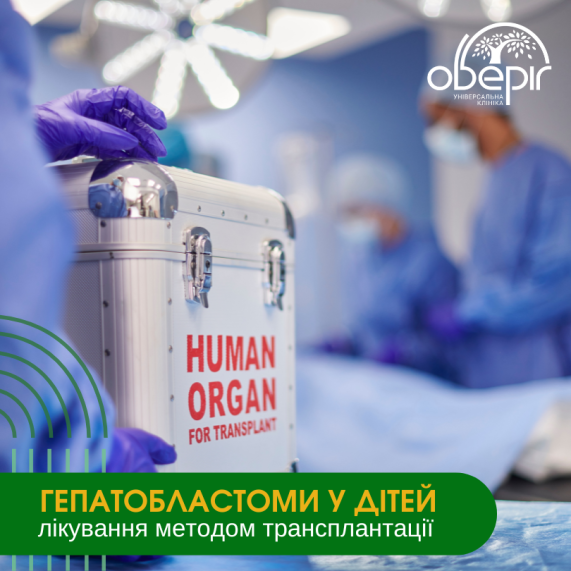Hepatoblastoma in children: treatment by transplantation
21 October 2024


21 October 2024


Hepatoblastoma is a malignant liver tumor of embryonic origin. This is a rare but aggressive liver tumor that is most common in young children (up to 3 years old). Hepatoblastomas are mainly localized in the right lobe of the liver, usually they are single, large tumors with a good blood supply, which are limited to one part of the organ. Only 15% of hepatoblastomas are multifocal, which is a sign of the aggressive nature of the tumor. Even more rarely, hepatoblastomas extend beyond the organ (extrahepatic). Usually, the tumor spreads through the circulatory system and gives metastases in distant parts of the body (hepatoblastoma metastases are more often found in the lungs). Up to 20% of all hepatoblastomas are detected at the stage of metastasis due to the appearance of symptoms of secondary damage to other organs.
Causes of hepatoblastoma
To date, the exact causes of hepatoblastoma have not been fully elucidated. However, there are several risk factors that can contribute to the development of this disease:
• Genetic mutations: Certain genetic changes can increase the risk of developing hepatoblastoma.
• Congenital conditions: Children with certain congenital conditions (eg, Beckwith-Wiedemann syndrome, Edwards syndrome, familial adenomatous polyposis) have an increased risk of developing hepatoblastoma. These genetic diseases are associated with a predisposition to the hereditary development of tumor processes.
• Environmental exposure: Some studies indicate possible exposure to certain chemicals or infections.
• Prematurity and low birth weight. These factors increase the risk of developing hepatoblastoma. Scientists believe that the combination of these two factors can act as a prenatal trigger for the development of hepatoblastoma.
Symptoms of hepatoblastoma can be diverse and often nonspecific. These include:
• Abdominal enlargement (including due to ascites)
• Stomach pain
• Loss of appetite, weight loss
• Fatigue
• Nausea and vomiting
• Jaundice
• Anemia
Diagnosis of hepatoblastoma
Diagnosis of hepatoblastoma includes:
• Physical examination: The doctor will conduct a thorough examination of the child, paying attention to the size of the abdomen and the presence of any lumps or painful areas.
• Laboratory studies: Blood tests will help assess the child's general condition and detect tumor markers. A laboratory test for the level of alpha-fetoprotein (AFP) is especially informative.
• Instrumental studies:
o Ultrasound examination of abdominal organs
o Computed tomography (CT)
o Magnetic resonance imaging (MRI)
o Liver biopsy (taking a tissue sample for microscopic examination)
Hepatoblastoma treatment depends on the stage of the disease, the child's age and general health. The main methods of treatment are:
The prognosis for children with hepatoblastoma has improved significantly thanks to modern treatment methods and, in particular, liver transplantation. The earlier the disease is detected and treatment is started, the higher the chances of recovery.
It is important to remember:
• Regular examinations by a pediatrician will help detect the disease at an early stage.
• It is very important to see a doctor in time if any alarming symptoms appear.
• Modern medicine offers effective methods of treatment of hepatoblastoma.
In the "Oberig" clinic, the team of doctors of the Pancreatic, Liver and Transplantation Center has accumulated successful experience in liver transplantation for hepatoblastoma in children. The Center is headed by Oleg Gennadiyovych Kotenko, a leading Ukrainian surgeon, oncologist, and transplant physician. It was in our Center that the youngest patient who needed a liver transplant was operated on. Its weight was only 5,350 g! In total, since 2021, our team of transplant specialists has managed to save the lives of almost two dozen children with incurable liver diseases through transplantation. It is worth noting that at the Oberig Clinic, operations are performed on both Ukrainian children and citizens of other countries.
Call to make an appointment for a consultation: +38 044 521 30 03
